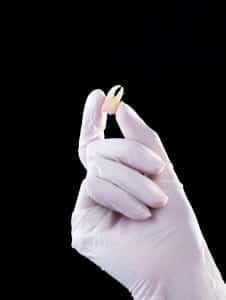 While the goal of keeping your smile clean and healthy is, in large part, to preserve all of your natural teeth, there may come a time when you have to contemplate tooth extraction. For many patients, the thought of losing the tooth can be daunting. However, in some cases, it may be the best option for preserving your smile.
While the goal of keeping your smile clean and healthy is, in large part, to preserve all of your natural teeth, there may come a time when you have to contemplate tooth extraction. For many patients, the thought of losing the tooth can be daunting. However, in some cases, it may be the best option for preserving your smile.
Because losing a tooth can affect the rest of your oral health, your dentist should only recommend tooth extraction when the tooth cannot be saved with restorative treatment. Afterwards, your dentist might also suggest replacing the tooth to restore your smile, preferably with a lifelike dental implant and crown.
Why Your Dentist Recommends It
If losing a tooth is bad, then why would your dentist recommend extracting it? Everyone’s dental health is different, but usually, extraction is necessary because a tooth is too severely damaged, infected, or misaligned to correct. In such cases, leaving the tooth in place can threaten your dental health by allowing the tooth’s infection or damage to spread, or by causing damage to other surrounding teeth.
For instance, impacted wisdom teeth, which are the most frequently-extracted ones, can push against nearby teeth as they grow, forcing them out of alignment and causing severe dental discomfort. Extracting impacted wisdom teeth alleviates the discomforts and removes the threat to your dental health, helping you preserve the rest of your healthy, natural smile.
What Extraction Means for Your Smile
Extracting wisdom teeth makes room on your dental ridges for the rest of your teeth to fit more comfortably. However, if you have one or more other teeth that need extraction, then their removal can cause an imbalance in your bite that can lead to continuingly worse dental issues.
To help prevent issues resulting from tooth loss, your dentist might recommend replacing your extracted tooth with a custom-designed dental implant and crown. The implant post mimics a tooth’s root, and is inserted into the jawbone to support the lifelike crown attached to the top, much like roots support the crowns of your healthy teeth.
